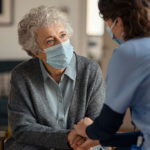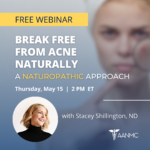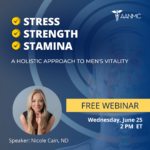For people who are struggling to survive from day-to-day, health care can be low on their list of priorities when they’re busy searching for their next meal or a place to sleep. One nonprofit has been working to reverse that trend by bringing complementary, alternative and integrative health care to Seattle’s homeless, low-income and transitional communities.
For 15 years, the Alternative Healthcare Access Campaign has been providing free acupuncture, naturopathic medicine and massage at five locations that serve some of the city’s most vulnerable populations.
“Many of our patients are just so grateful to have someone willing to listen to them with a caring heart,” says Ellen Sims, executive director of the organization that has served more than 3,000 clients since October 2000.
Alternative Health Care Access
In the past 10 years, the use of complementary, alternative and integrative medicine has doubled, according to the National Institutes of Health. During that same time, millions more Americans have gained access to health care through the Affordable Care Act.
But access to alternative health care still is largely limited to the wealthier segments of society, which is what led a group of students and homeless advocates to found the Alternative Healthcare Access Campaign.
“Sleeping on the ground or on top of milk crates can be hard on the body,” says Sims, who also is a licensed massage practitioner. “Include with that the day-to-day stress of making sure your dire needs are met such as food – a massage is like a slice of heaven for these folks.”
Access to natural pain relief as well as naturopathic primary care also can help decrease the use of opiates and other prescription drugs, which can be a dangerous combination for people living on the streets who also are battling mental health issues.
Plans for Future Growth
The Alternative Healthcare Access Campaign is run strictly by volunteers, including the licensed naturopathic doctors, acupuncturists and massage therapists who provide their services free of charge.
Services currently are offered monthly at:
– Compass Cascade Women’s Program in downtown Seattle
– Frye Apartments, a low-income housing building in downtown Seattle
– Peace for the Streets by Kids from the Streets on Capitol Hill
– ROOTS Young Adult Shelter in the University District
– Tent City 3 (location changes every 90 days)
The nonprofit hopes to grow enough to offer weekly services at each of the sites to make an impact on clients’ health in a more sustainable way.
“This would also let us have a closer look at the impact we are having on these people’s lives and our greater community,” Sims says.
How You Can Help
In addition to helping its clients, the Alternative Healthcare Access Campaign also provides an educational platform for natural health students.
“Students working at these clinics are able to take their skills and understanding to another level by interacting firsthand with the people in our communities in a real way, not just middle to upper class,” Sims says.
They also gain valuable skills from the licensed practitioners they work under at these clinics. Sims adds that as the group grows, it hopes to eventually pay its practitioners so they can be eligible for student loan forgiveness.
However, all types of volunteers are needed to help staff these locations and provide behind-the-scenes support. If you would like to help, go to the volunteer page on the nonprofit’s website.
“We are currently in a big transition phase and are looking for experienced and dedicated board members to join our team,” Sims says. “We are hoping to move forward in a positive, strong foundational way that is sustainable and allows for growth.”
For more information about the group or to donate, go to AHACSeattle.org.





